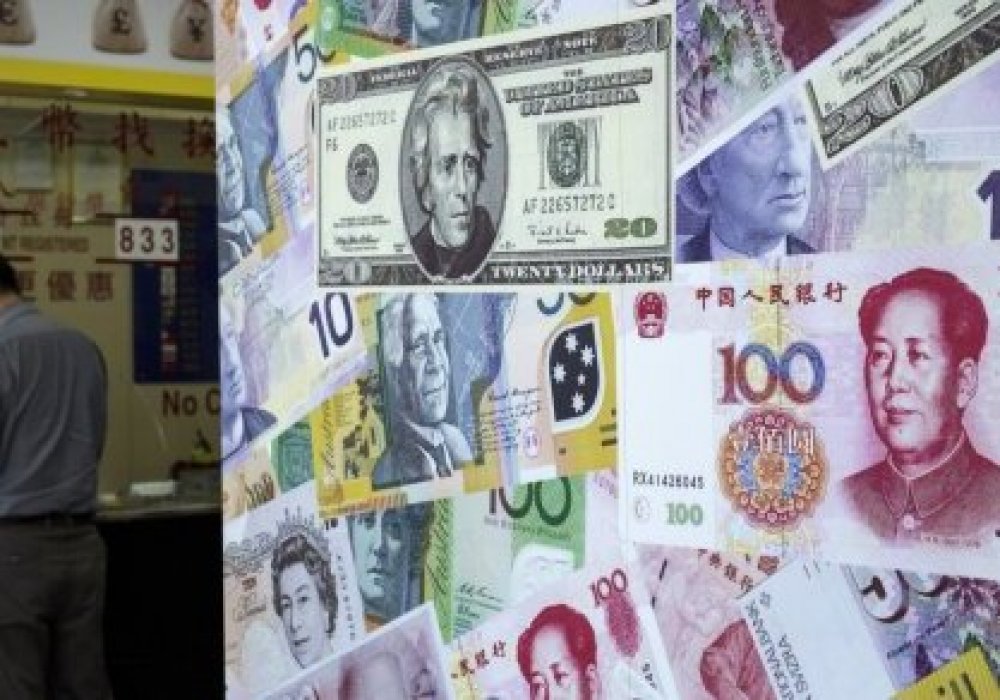
Introduction of dedollarization policies in the Kazakh economy followed by floating of the tenge has not resulted in a complete freedom of the financial sector of Kazakhstan from the USD pegging, as many believe.





Introduction of dedollarization policies in the Kazakh economy followed by floating of the tenge has not resulted in a complete freedom of the financial sector of Kazakhstan from the USD pegging, as many believe.
Ak Zhol, Kazakhstan's democratic political party, in its letter to the new Governor of the National Bank Daniyar Akishev expressed concern over the country's pension fund and currency pegging. In particular, the party emphasized tenge's connection to the USD on the banking level manifested through loans and interests rates. According to Ak Zhol, local banks offer loans in USD or loans with interest rates pegged to USD. "In case of tenge loans, the interest rates are so high that there is no point in doing business at all," the party wrote in the letter to the Governor.
Hence, Ak Zhol suggested give up pegging the tenge to the USD in order to achieve the dedollarization initiated by President Nazarbayev. "We believe that considering the main economic partners of Kazakhstan, it will be more stable and objective to peg the national currency to a currency basket, which aside from the dollar includes Euro, Russian Ruble and Chinese Yuan. Although China's national currency does not have a status of internationally prevalent currency, it is distinctly stable (...), especially considering the planned investments as a part of the global program New Silk Road," the party said.
However, some of the financial experts do not agree with the democratic party of the country. Timur Nigmatullin of Finam thinks that pegging tenge to yuan will create a draught of gold reserves of Kazakhstan and lower the competitive capabilities of locally produced goods, since the competitive advantage in cross-border trade created by the cheap Kazakh currency will be lost.
Technically, according to Nigmatullin, pegging the tenge to the yuan will be fairly simple and can be achieved in a short period of time. “Moreover, pegging the tenge to the yuan does not depend on the currency’s status of a reserve currency (this status only lowers the risk associated with possible non-market fluctuation of the exchange rate). Nontheless, I do not think that Kazakhstan will decide to peg its currency to the yuan. The point is that the yuan is currently overestimated against currencies of all the developing countries due to its dependence on the USD, (as the USA is the main trade partner of China),” the Kazakh financial analyst said.
He also believes that foreign trade in yuan is pointless. It will only increase transaction expenses of exporters, which in turn will worsen the difficult situation for the budget created by low oil prices.
The expert also said that Kazakhstan had to wait for the tenge to test the bottom. “When the subsequent inflation shock passes, the economy of the country will fell all the perks of the floating exchange rate such as low interest rates and acceleration of the country’s economic growth,” Nigmatullin said.
Madiyar Kenzhebulat, a leading research fellow of the Institute of Economic Research, noted that despite some liberalization achieved by the Chinese government, the Chinese currency was still tied to the US dollar. “Unless the Chinese currency becomes freely convertible there is no point in pegging the tenge to the yuan. In case there is a need to peg the tenge to some currency, then, probably it is more viable to peg it to the Russian Ruble. At this point, Russia is a more significant trade partner than China for Kazakhstan. Later on, the Kazakh national currency could be pegged to a currency basket of our main trade partners,” Kenzhebulat said.
However, the Kazakh researcher noted, considering the new monetary policy, the currency exchange rate stopped being a nominal anchor, hence, pegging to any currency did not seem viable. “Had this question emerged during the fixed currency rate period, then there would have been a point in talking about it. So there is no point in pegging it to the yuan or to any other currency considering the current monetary policy,” Kenzhebulat concluded.
Among all the commotion around the tenge exchange rate and its prospects, everyone is waiting for the new governor of the central bank of Kazakhstan Daniyar Akishev to ensure at least some predictability in the otherwise uncertain situation in the financial sector of Kazakhstan, as well as to put an end to various speculations.
By Gyuzel Kamalova, editing by Tatyana Kuzmina

 +7 (777) 001 44 99
+7 (777) 001 44 99



 Қазақша
Қазақша Русский
Русский English
English














































